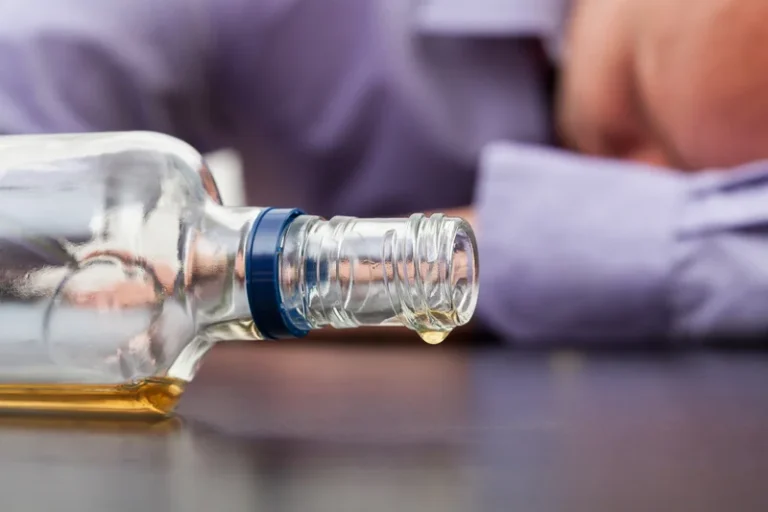
These are all valid reasons, and many can accomplish their goals without needing a treatment center. However, a thin line can divide when it’s appropriate to seek treatment or when moderation or abstinence is enough. While research shows long-term benefits to abstinence, this approach can leave out those who want to change their drinking habits but are not ready to abstain completely. Many treatment facilities require that their “clients” remain substance-free, which may deter those wanting to adapt their relationship with alcohol. The journey to changing your relationship with alcohol is about progress, not perfection. Whether you’re working towards sobriety or moderate alcohol intake, the most important thing is to keep going.

How Does Gender Equality Affect Mental Health at the Top?
This is because alcohol can cause depression, anxiety, and other mental health problems. Drinking alcohol can contribute to a variety of cognitive issues, including poor https://ecosoberhouse.com/article/psychological-dependence-on-alcohol-physiological-addiction-symptoms/ memory, slow reaction time, impaired impulse control, and poor concentration. Over time, drinking can also damage nerve cells and contribute to a loss of brain volume.
Painkiller Abuse: A Gateway to Heroin Addiction
Embarking on the journey to sobriety is an incredible accomplishment, but maintaining long-term recovery can be challenging. One of the most significant debates among recovering alcoholics is whether to practice complete abstinence or attempt moderate drinking after being sober. This blog post will delve into the nuances of both approaches, shedding light on the risks, benefits, and strategies to help individuals make informed decisions and maintain a fulfilling sober life. Research indicates that while the likelihood of avoiding heavy alcohol consumption is highest in abstinence-focused individuals, those with moderation objectives were also able to reduce their alcohol use. An individual’s ability to avoid excessive drinking is also influenced by other factors such as past alcohol consumption, as reflected by an alcohol use disorder diagnosis. Depending on the number of criteria met, an individual will be diagnosed with mild, moderate, or severe AUD.Individuals with severe AUD often find that in the long term, sobriety is the most achievable goal for them.
- For individuals with severe alcohol dependence, however, withdrawal symptoms can be more severe and may require medical attention.
- These resources offer a secure and encouraging atmosphere to share stories, gain inspiration from others in similar circumstances, and foster a sense of community and responsibility in maintaining long-term sobriety.
- Dr. Stanton Peele, recognized as one of the world’s leading addiction experts, developed the Life Process Program after decades of research, writing, and treatment about and for people with addictions.
- Regardless of your path, working with a physician and therapist can provide answers, reassurance, and guidance throughout the process.
- If quitting is your ultimate goal, starting with moderation may help you achieve it.
MARKET INSIGHT: UNCALCULATED RISK
- Alcoholics who have a clinically demonstrated inability to control their drinking are rarely able to develop a manner of living in which they are able to control their drinking.
- Abstinence can have many benefits, including improved mental and physical health.
- Environmental factors, such as family history, peer pressure, and stress, can also contribute to a person’s risk of developing AUD.
- They have often attempted moderation and have not been successful, they know that their lives are better when they avoid using.
Rychtarik et al. found that treatment aimed at abstinence or controlled drinking was not related to patients’ ultimate remission type. Booth, Dale, and Ansari (1984), on the other hand, found that patients did achieve their selected goal of abstinence or controlled drinking more often. Miller et al. (in press) found that more dependent drinkers were less likely to achieve CD outcomes but that desired treatment goal and whether one labeled oneself an alcoholic or not independently predicted outcome type. Nordström and Berglund, like Wallace et al. (1988), selected high-prognosis patients who were socially stable.
Alcohol addiction treatment programs can guide individuals through a safe and effective medical detox, followed by counseling that targets the reasons behind addiction. These answers will vary from individual to individual, and your choice of moderation vs. abstinence is a personal one. Our program offers expert medical support, recovery coaching, and a variety of tools and resources—all delivered 100 percent virtually. Learn more about moderation with Ria Health, or find out how our program works. Learning to drink in moderation can be the goal, or it can be a way station on the way to abstinence.
Electrical Currents as Treatment for Depression
The brain also begins to repair some of the damage and shrinkage you may have experienced while drinking. One study showed that after 6 weeks of abstinence from alcohol, brain volume increases by an controlled drinking vs abstinence average of 2%. It’s normal for people to resist the idea of stopping drinking completely when they begin to realize that jobs, health or relationships are jeopardized due to a drinking problem.





